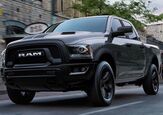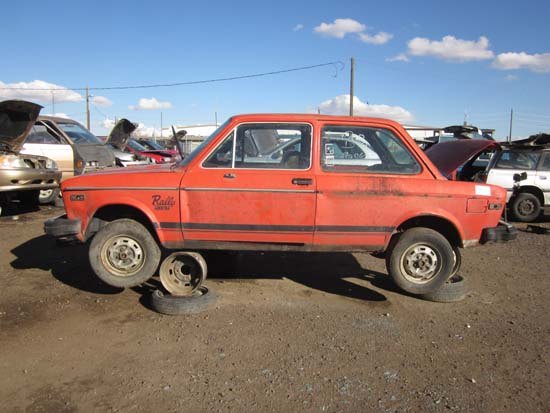Question: Are European Cars Really More Reliable In Europe Than In North America?

Ever since I began writing about cars for various online publications, one argument keeps showing up in readers’ comments: Many European cars that are regarded by Americans as totally flaky (e.g., Fiats, anything French) are considered quite reliable in their home continent. The subtext of this argument is generally “You can’t let Americans have anything nice, because they’ll destroy it like a bunch of chimpanzees given unlimited meth and armed with claw hammers.” Meanwhile, the American readers of these comments usually fulminate about Yurpeans being a bunch of public-transit communists who don’t understand cars. This age-old debate— which I suspect appeared for the first time in an automotive BBS, circa 1979— surfaced again in the comments of yesterday’s Cadillac Catera Junkyard Find. What’s going on here?
One big difference between Western Europe and the USA is that it’s easy and cheap to have a car on this side of the Atlantic; most states will give you a driver’s license if you fail to kill anyone during the driving test, registration fees and taxes are low, and you can find a beater car that runs (after a fashion) for next to nothing. The American economy is so dependent on everyone being able to hop in the primered-out, space-saver-spare-shod Lumina and careen down the nearest highway that the idea of putting serious hurdles in the path of car ownership is unthinkable. In Europe… well, it’s not like that. How do these differences lead to such disparity in perceived reliability of, say, the Peugeot 504, which manages to survive hundreds of thousands of kilometers on African roads with little maintenance while its American counterparts fell apart in a matter of months?
As far as I can tell, the primary arguments in this ancient debate boil down to these:
I don’t know why I bother to list those arguments, because we’ve all suffered through the endless flame wars. Perhaps we can analyze this question with logic and wisdom instead of passion and brickbats. Or not. What do you think?

Murilee Martin is the pen name of Phil Greden, a writer who has lived in Minnesota, California, Georgia and (now) Colorado. He has toiled at copywriting, technical writing, junkmail writing, fiction writing and now automotive writing. He has owned many terrible vehicles and some good ones. He spends a great deal of time in self-service junkyards. These days, he writes for publications including Autoweek, Autoblog, Hagerty, The Truth About Cars and Capital One.
More by Murilee Martin
Latest Car Reviews
Read moreLatest Product Reviews
Read moreRecent Comments
- Bankerdanny Why send this particular journalist? Her point of view should have been well known, what kind of story did they expect to get from her?
- Slavuta "The NHTSA’s ruling will make AEB the law of the land," -- who elected these dorks to make laws of the land? But then again.. will US be around in 2029?"Braking systems must be able to activate automatically at up to 90 mph when a collision is imminent" -- I already envision highway pileups. So, If I come too close behind to pass a car ahead, the AEB will make life fun. nice.
- Tassos The Applebees waitress I was courting had one of these. She got rid of it after her mechanic found one of my AirTags in the rear bumper. We lost touch after the restraining order was granted so I don’t know what she drives now. Probably a frontier pro4x.
- Bankerdanny How did Fiskar accumulate the income and assets to buy an 8 figure home? His first company went belly up and his 2nd is rapidly getting there. What business has he owned that generated that kind of wealth for him/
- Lorenzo TikTok won't sway young people, but low prices will. There will need to be a parts and service network in place to go along with it, and of course, the vehicles must be able to survive typical American neglect of maintenance. Miss on those, and Chinese brands can follow Renault and Peugeot out the door.





































Comments
Join the conversation
Dealer network and manufacturer/importer support has much to do with it than just the manufacture of the car. VW became #1 import in the US and all the others faded out in the 1960's. Why, yes, the car was well built, but far more complex and "delicate" than a Valiant. VW of America had a dealer network second to none. All parts were available in stock and the service departments were clean, well equipped and charged reasonable rates. At the luxury end of the market MB was the same, except far more expensive. I worked as an independent 'ferrin car mechanic in the 1970s and was exposed to out-of-warranty VWs, Fiats and an occasional Renault, Simca, Jag, MG or Volvo. Trying to get parts for other than VW was always a problem. Usually, one dealer in town carried several European brands and was a pretty small with little inventory. Fiat did, however, have lingering build quality issues. Larry Reed Sportscars in Torrance had a good stock of crate engine blocks for Fiat in stock at all times. I was Tony, but drive a VW myself. MB and Volvo really glory years over here in the late 1970's to early 1980's, just when US cars were in the crapper. I still see/hear 240D's clattering around here. More modern experiences? We had a 325i for over 100,000 miles, bought used. Routine stuff was easy and done on-schedule, but the care broke down far too often, mostly cooling system failures. We had a rental Fiat Uno on vacation in Italy, a new car thtat could barely do the speed limit on the Autostrada and it leaked when it rained.
The unpopularity of most American cars in Europe has nothing to do with their reliability. Their large size, overpowered engines and poor fuel economy and the resulting maintenance and tax costs (and lack of dealerships/spare parts) are the reasons why American cars never caught on. For example, Ford tried selling us the Excursion. It didn't work. Nobody in Europe needs such a pointless car. So they made the 6.8 V10 an "optional" engine and made the 7.3 V8 diesel the standard motor since Europeans love diesels, right? It didn't work. A 7.3 V8 diesel is an outrageous engine here and will be heavily taxed. Overall, the Excursion was a pointless car for Europe. It's not unusual to see a Hummer H2 or a Cadillac Escalade in Switzerland, but these are rare status symbols bought by people who want to be different or have different tastes (and can afford it). The average European prefers practical cars and practical luxury cars with sensible running costs. On the other hand, there are many American cars that are very popular in Europe like the Jeep Grand Cherokee, PT Cruiser, various Chrysler Voyager vans and now recently the Chevrolet Spark and Cruze (the latter which were designed with Europe in mind). As for European cars and their reliability. Back in the '70s I was a negotiator for for a major firm dealing with wood and this job required me to travel all over Western Europe - by car. My company cars were always French - mostly Renaults and some Peugeots. The preferred model in the late '70s was the Renault 18. Cheap, reliable, easy to service, great on gas and comfortable. I owned two of these from 1978 to 1985, both with the 2.1 diesel. If memory serves me right, I put over 230,000 km on the first one, and a little above 200,000 km on the second one. In those times that was considered high mileage and the cars held up quite well. Basic maintenance was performed by myself and the Renault dealership. What did reliability mean to me back then? Well, the cars always started (was a little tough in the winters being an old diesel) and never left me stranded. I don't consider parts that had to be changed due to wear and tear to be a reliability issue. I also had a 1985 Peugeot 505 Break (estate) with the small 2.3 diesel. I loved that car. It was so comfortable and even refined for a diesel in those days and it was also faster than the more expensive Mercedes diesels. It was a really good car and I liked it a lot. Company cars could be bought after four years and I bought the Peugeot in 1989 for my private use (had an Opel Ascona C as a company car by then) and kept it until 1994 when I gave it to my son. By then it had amassed a little over 400,000 km and was still running in perfect order. Reliability was top. Only parts affected by wear and tear were replaced but to me that has nothing to do with reliability since different materials wear out quicker than others in different cars. My son kept the 505 until 1999 when he sold it to an Eastern European buyers. I do not know how much mileage it had amassed by that date but it wouldn't surprise me if it was still running somewhere in Eastern Europe. It was a good car and I have fond memories of it. Later in the '80s my company switched to German cars, Opel Asconas and Kadetts and later a Mercedes 230E W123. These were good cars. Very reliable and cheap to fix if something broke, which was rare. I had an Opel Ascona C by the (I think it was a 1988 model, one of the last ones). A good car, not a great car. Reliable but very plain and boring with no real strong characteristics that stood out. My experience with French cars has been very good. The biggest problems they had were with rust. Currently I have a 2010 Volkswagen Jetta 2.0 TDI which I love and it is a very reliable car. I only had a dead battery on one occasion and a malfunctioning taillight lamp that was replaced under warranty.